The Lincoln community enjoys a multitude of benefits like beautiful parks, vibrant city, efficient essential services, fun entertainment, and most of all, clean and healthy living. But how? An important part of Lincoln’s infrastructure is a complex stormwater system that protects the community from potential flooding and offers environmentally friendly solutions to help maintain a waste-free city.
Watch: Hydrodynamic Separator Video
One Giant Separator
One particularly large device used in the stormwater system has been quietly benefitting the community for the past 13 years. Giant hydrodynamic separators are doing their part to maintain the city’s beauty and keep Lincoln’s stormwater safe for aquatic life. These unique devices are about six to eight feet in width and are installed under storm drains. The devices are sort of like giant water filters, except they use a whirlpool-like action instead of a screen or mesh. They allow stormwater to continue down its path to creeks, lakes, and streams, while simultaneously collecting and separating sediment and trash swept into storm drains during rainstorms. That waste is then collected, separated from the water and properly disposed of by Lincoln Transportation and Utilities (LTU) crews.
“Hydrodynamic separators offer a great benefit to this community,”
said Roger Funk, Stormwater Supervisor, Street Maintenance and Operations. “They quietly reduce pollution, collect sediment and floatable items like oil, leaves, litter and debris.”
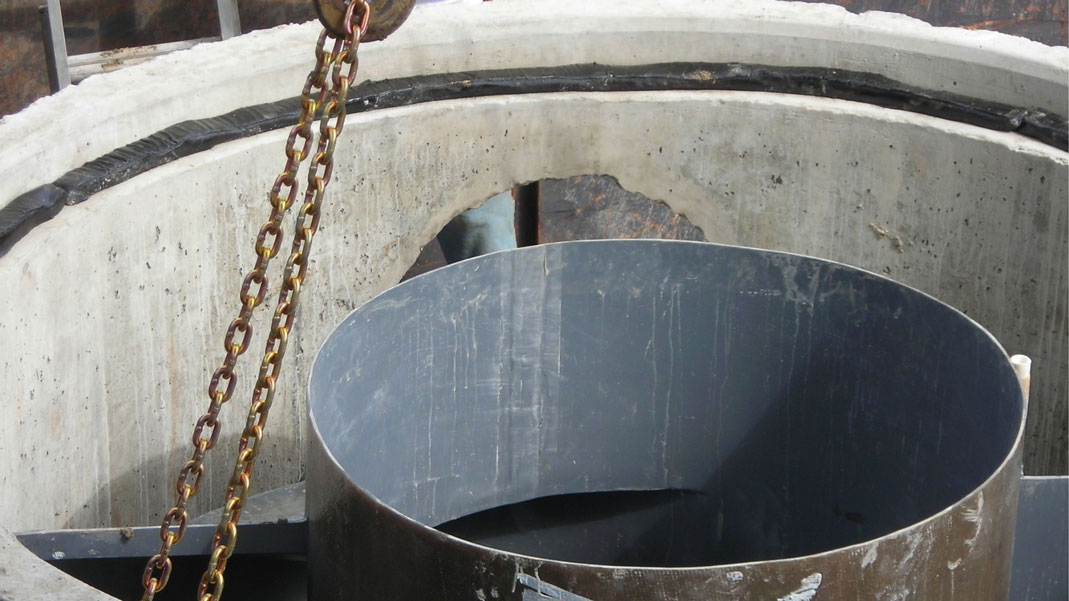 The first hydrodynamic separator in Lincoln was installed underground in 2009.
The first hydrodynamic separator in Lincoln was installed underground in 2009.
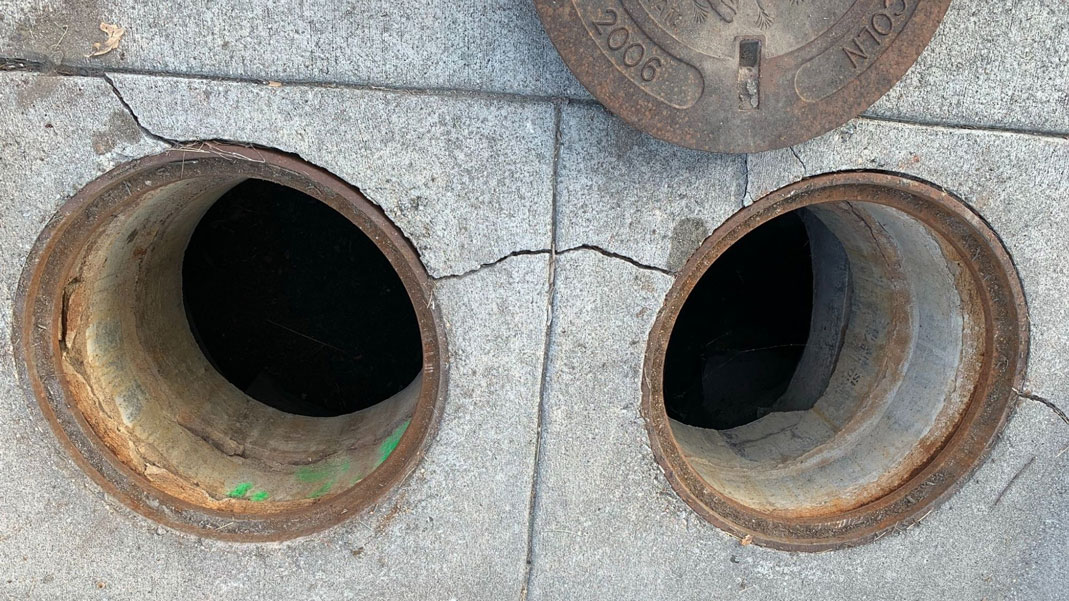 The manholes leading to the hydrodynamic separator located underground.
The manholes leading to the hydrodynamic separator located underground.
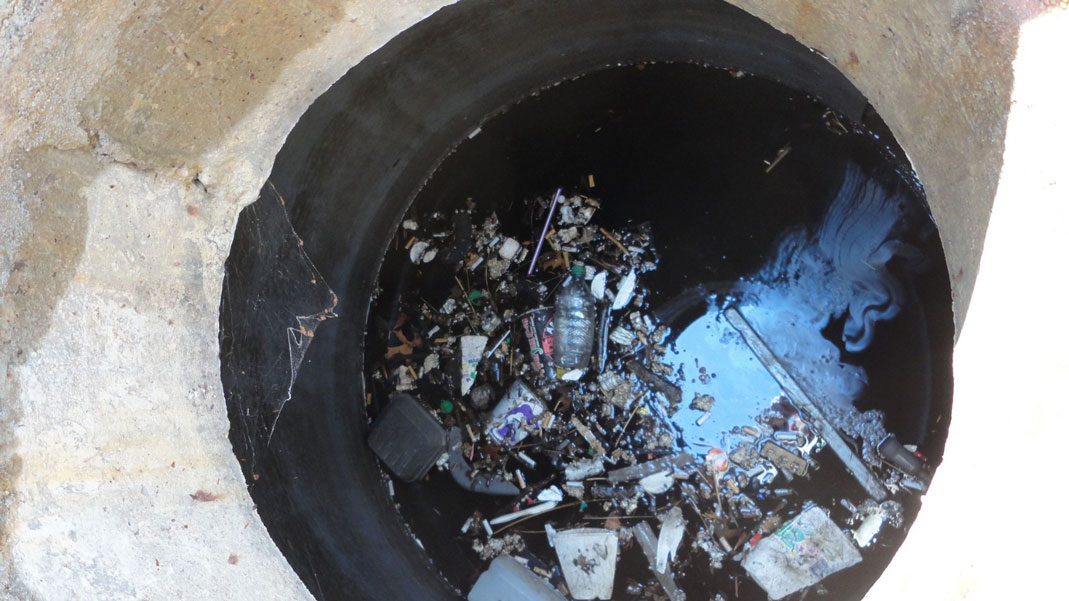 The inside of a full hydrodynamic separator that has collected and separated sediment and waste.
The inside of a full hydrodynamic separator that has collected and separated sediment and waste.
19 And Counting
Lincoln Transportation and Utilities Watershed Management division approved its first installation of these stormwater management devices in 2009. Since then, 18 additional devices have been installed across the city, with hopes more will be installed as Lincoln expands.
“The separators are a win for residents, developers, and the City. They offer great environmental benefits, they are economical to maintain, save on land space and meet state and federal requirements to reduce the potential for flooding. These devices are growing in popularity across the nation,”
said Shannon Ideus, Senior Environmental Health Specialist, LTU Watershed Management.
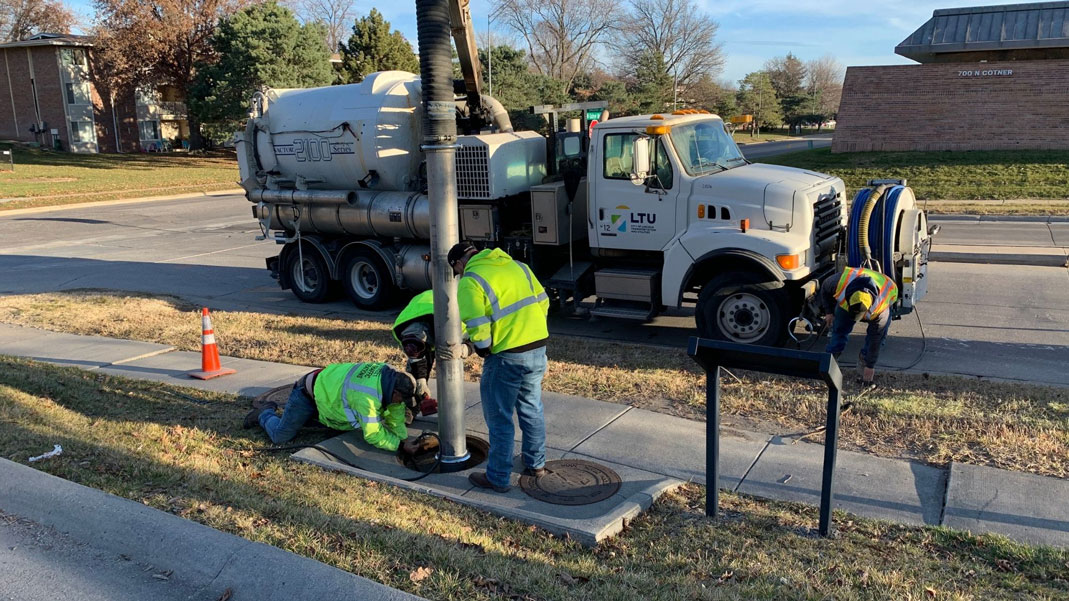 Lincoln Transportation and Utilities Operations and Maintenance team members work together to clean out a hydrodynamic separator using a vacuum truck.
Lincoln Transportation and Utilities Operations and Maintenance team members work together to clean out a hydrodynamic separator using a vacuum truck.
Quiet and Easy to Maintain
For someone who takes water quality seriously, Funk describes the maintenance process of emptying hydrodynamic separators as simple. LTU Operations and Maintenance division teammates clean each system with a large vacuum truck. Once all sediment and litter are removed, they work with LTU’s Solid Waste Management division at the Bluff Road Landfill to dispose of it properly.
“Multiple divisions work together to contribute to Lincoln’s water quality efforts. It is exciting to see the positive impact these systems are making in our environment as we continue to enhance the community’s quality of life,”
said Trevor Hansen, Senior Environmental Health Specialist, LTU Watershed Management.
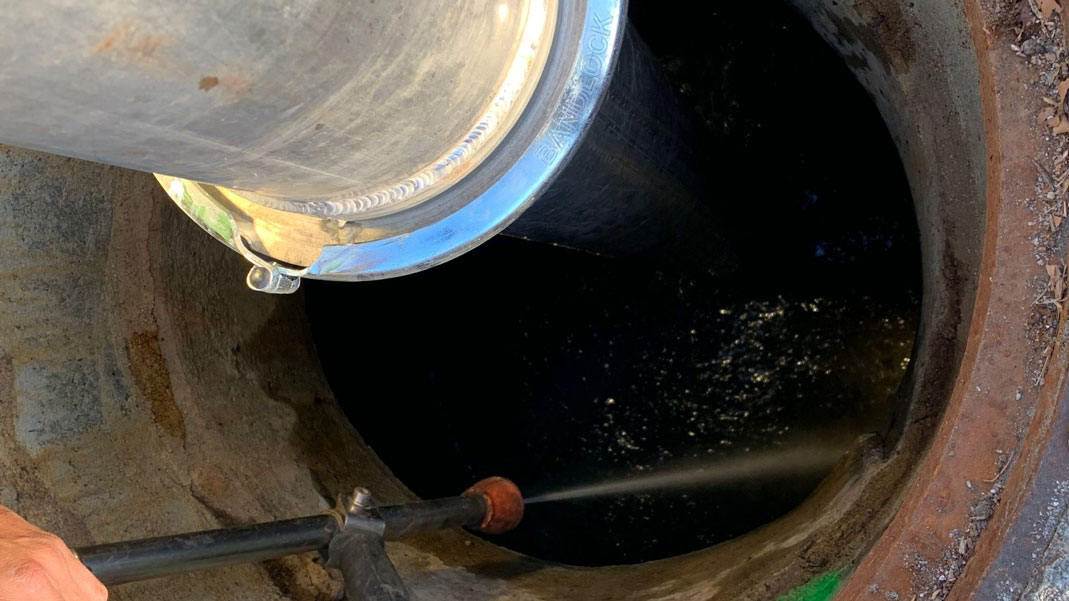 A closer look at how Lincoln Transportation and Utilities team members loosen up and clean out sediment in a hydrodynamic separator.
A closer look at how Lincoln Transportation and Utilities team members loosen up and clean out sediment in a hydrodynamic separator.
Tips to Keep Lincoln’s Water Clean
The hydrodynamic separators are a valuable part of Lincoln’s best management practices, but there is still work to be done. Hansen said the most positive efforts to keep our stormwater safe and healthy are those steps taken by each person in this community. Tips include:
- Recycle and properly dispose of used items (cigarette butts, fireworks debris, plastic bags and other waste) so they do not end up in streams, rivers, lakes and oceans.
- Minimize chemical use and fertilizers that can seep into stormwater drains and affect aquatic life.
More Info on Fertilizer
- Dispose of hazardous materials (motor oil, paints, medicine) correctly. Only rain in the drain.
- Lower water usage. Water grass in the early morning or late evening to avoid evaporation during the hottest times of the day.
More Lawn Care Tips
- Keep water runoff minimal. Sweep rather than hose off your driveway. Use a bucket instead of a hose to wash your vehicle. Dispose of the soapy water in your rock bed or garden.
- Reuse water. Invest in a rain barrel or build one!
More Info on Rain Barrels
Watch: How to Build a Rain Barrel
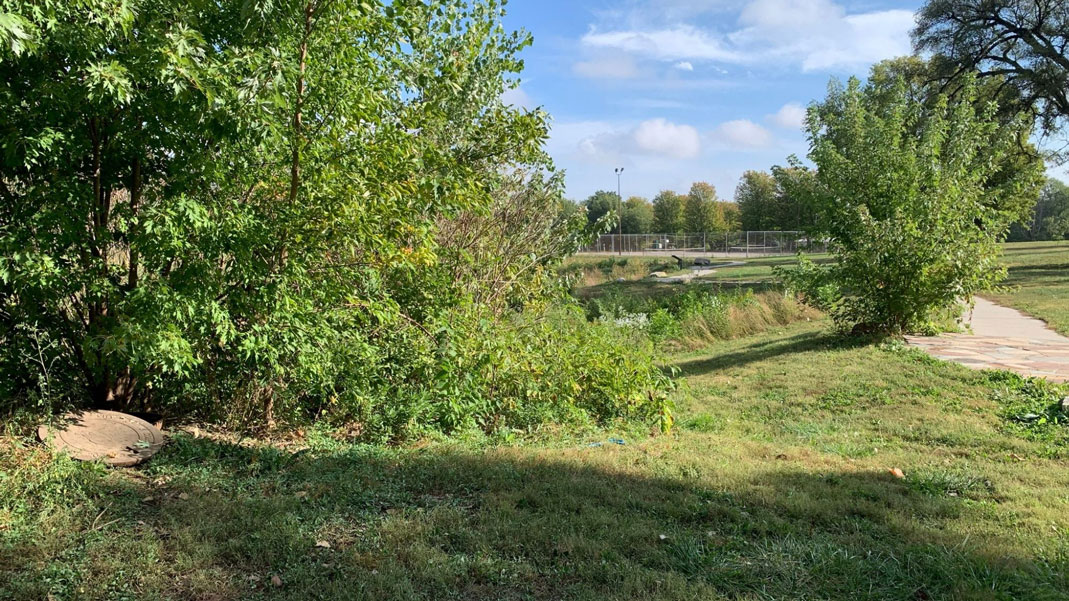 Hydrodynamic separators can be installed near sources of water like at Tyrrell Park in Lincoln.
Hydrodynamic separators can be installed near sources of water like at Tyrrell Park in Lincoln.
For more information on the City of Lincoln’s Best Management Practices and hydrodynamic separators, go to watershed.lincoln.ne.gov or contact Trevor Hansen, Senior Environmental Health Specialist, LTU Watershed Management at NPDES@lincoln.ne.gov.